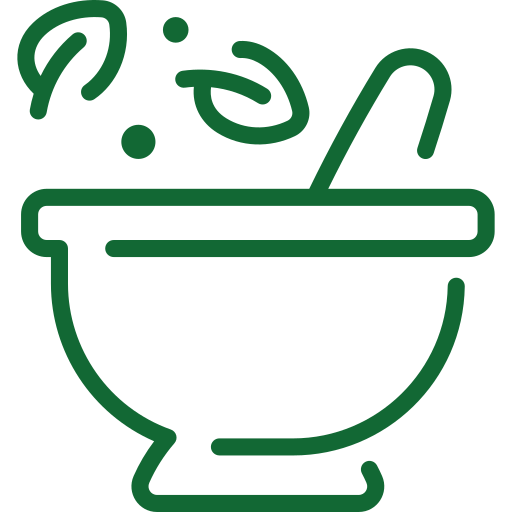Parkinson's disease
Parkinson's disease - modern and Ayurvedic view of treatment
Parkinson's disease is a neurodegenerative disease of the central nervous system that affects the body's movement control system. Its main symptoms include tremor (shaking), slowness of movements (bradykinesia), muscle stiffness and problems with balance and coordination. These symptoms usually gradually worsen over time and can have a significant impact on the patient's quality of life.
Causes of origin
From the point of view of modern medicine, Parkinson's disease is caused by the gradual loss of neurons in the brain, especially in the part of the brain called the substantia nigra. This loss of neurons leads to a lack of dopamine, the neurotransmitter responsible for controlling movements. The causes of this neuron degeneration include genetic factors, exposure to toxic substances and oxidative stress.
According to Ayurvedic medicine, Parkinson's disease is caused by an imbalance in the tridosha system - Vata, Pitta and Kapha. Specifically, it is usually associated with an imbalance of the Vata dosha, which is responsible for movement and the nervous system. Excessive Vata dosha can lead to weakening of nerve tissue and function, which in turn affects the body's movement control system.
In Ayurveda, it is also believed that Vata dosha aggravation can be caused by various factors which include:
-
improper diet and lifestyle: excessive stress, irregular eating habits and improper diet can disrupt the balance of the tridosha system and lead to Vata dosha imbalance
-
toxic build-up: according to Ayurveda, toxic build-up in the body, caused by metabolic waste, unawakened tissues or unhealthy foods, can cause disruption of the nervous system and lead to Parkinson's disease
-
excessive physical and emotional stress: excessive physical activity as well as emotional stress can aggravate the Vata dosha imbalance and have an adverse effect on the nervous system
-
overstimulation of the nervous system: too much stimulation and stressful stimuli can overactivate the nervous system and contribute to Vata dosha imbalance
For these reasons, Ayurveda emphasizes the importance of a balanced diet, regular exercise, stress-relief techniques, as well as detoxification procedures to support the balance of the tridosha system and prevent diseases such as Parkinson's disease. It is important to note that although Ayurvedic medicine offers insight into the causes of Parkinson's disease, the treatment of this disease should be integrated with modern medicine and individually tailored to the needs of each patient.
Recommended herbs
-
Withania somnifera (Ashwagandha): is known for its adaptogenic properties and supports the nervous system. It also has anti-inflammatory effects and helps alleviate the symptoms of Parkinson's disease.
-
Bacopa monnieri (Brahmi): is an herb that has calming and nervine effects. It helps in improving memory and concentration, which can be useful in Parkinson's disease.
-
Indian Valerian: has calming effects and helps relieve anxiety and stress that can be associated with Parkinson's disease
A suitable combination designed by Dr. by Vikram Chauhan (Ashwagandha 1 capsule 2x a day, Calm easy 1 capsule 2x a day, Neurogin 2 capsules 2x a day)
Suitable diet and lifestyle:
From the point of view of Ayurveda and modern medicine, it is important to follow a balanced diet that contains enough antioxidants and vitamins to minimize oxidative stress in the body. It is also important to avoid toxic substances and stimulants, such as alcohol and smoking, which can worsen the symptoms of Parkinson's disease.
Lifestyle should include regular physical activity, breathing exercises and stress-relieving techniques such as yoga and meditation. It is also important to maintain regular sleep and avoid excessive stress and anxiety, which can have a negative effect on the nervous system.
Overall, the treatment of Parkinson's disease is a complex process that requires an integrated approach based on the latest knowledge of modern medicine and the traditions of Ayurveda. Using appropriate herbs and following a healthy lifestyle can help alleviate symptoms and improve the quality of life of patients with Parkinson's disease.






